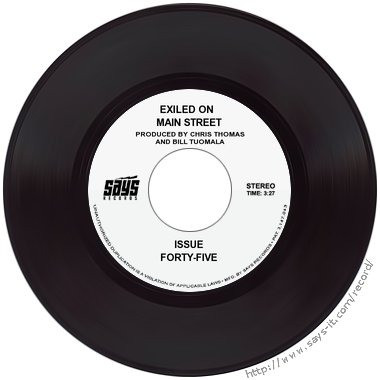Copy Link
Add to Bookmark
Report
Computer Undergroud Digest Vol. 09 Issue 32

Computer underground Digest Tue Apr 23, 1997 Volume 9 : Issue 32
ISSN 1004-042X
Editor: Jim Thomas (cudigest@sun.soci.niu.edu)
News Editor: Gordon Meyer (gmeyer@sun.soci.niu.edu)
Archivist: Brendan Kehoe
Shadow Master: Stanton McCandlish
Shadow-Archivists: Dan Carosone / Paul Southworth
Ralph Sims / Jyrki Kuoppala
Ian Dickinson
Field Agent Extraordinaire: David Smith
Cu Digest Homepage: http://www.soci.niu.edu/~cudigest
CONTENTS, #9.32 (Tue, Apr 23, 1997)
File 1--Thunderclouds on the Net's Horizon
File 2--Reception of radio B92 affected by block on XS4All
File 3--Letter to DFN, organisation that is censoring xs4all webserver
File 4--Groups Protest German Compuserve Prosecution
File 5--Cu Digest Header Info (unchanged since 13 Dec, 1996)
CuD ADMINISTRATIVE, EDITORIAL, AND SUBSCRIPTION INFORMATION APPEARS IN
THE CONCLUDING FILE AT THE END OF EACH ISSUE.
---------------------------------------------------------------------
Date: Mon, 21 Apr 1997 10:41:12 +0200 (MET DST)
From: Felipe Rodriquez <felipe@xs4all.nl>
Subject: File 1--Thunderclouds on the Net's Horizon
Thunderclouds on the Net's Horizon
by Sabine Helmers
As the bright streak of Hale-Bopp fades from the earth's view, the night
sky darkens once again. Not only is the firmament a shade darker, but the
Net has been as well since April 11.
The Deutsches Forschungsnetz (German Research Net, here abbreviated DFN),
the oldest and still most important ISP in Germany, connecting universities
and research institutions, has blocked access to the Web server of the
Dutch Internet Service Provider (ISP) XS4ALL. Connecting to the Web address
"www.xs4all.nl" is no longer possible via the DFN which has acted on a
request from the German federal law enforcement agency (Bundeskriminalamt),
which in turn reacted to the demands of federal prosecutors
(Bundesanwaltschaft) that one of the texts outlawed in Germany no longer be
distributed via the Net.
The text at the heart of the controversy has already made headlines
throughout the past year: an article in issue 154 of the publication
Radikal outlines tips and tricks for sabotaging the railways. According to
federal prosecutors, this text runs contrary to German law if it is to be
interpreted as calling for acts of violence against the general public and
constitutes a violation of Articles 129a, Paragraph 3; 130a, Paragraph 1
and 140, Paragraph 2 of criminal law (Strafgesetzbuch). As early as August
1996, the federal law enforcement agency and federal prosecutors notified
German ISPs that this same article in Radikal was entering German territory
via the Net and warned them that they could possibly make themselves liable
to prosecution for aiding and abetting criminal activity if they didn't
block access to this article.
But sorting through the streams of data flowing through the Internet to
pick out individual items is still not possible. The Net wasn't created
with this function built in. Technically, only one possible choice is left
to any ISP which is forced to block a particular text, and that is to
strike the entire source from the Internet addressing system, thereby
blocking it completely. In the case of XS4ALL, this means that thousands of
Web pages are equally blocked, some of them including information on
Amsterdam sports clubs and artists, the pages of the Israeli Embassy,
universities and private home pages -- all that's usually found on Web
servers of perfectly normal ISPs and is entirely legal according to German
law.
At the same time, XS4ALL is not a usual commercial ISP in that it has its
historic roots in the Dutch hacker movement and considers one of its
primary goals to be providing access to any and everyone. The managers of
XS4ALL vehemently refuse to remove the Radikal article which was placed on
its Web server by one of its clients, the Dutch "Solidarity Group for
Political Prisoners". The text does not violate Dutch law.
Last September, some German commercial ISPs reacted quite quickly to the
letter circulated by federal prosecutors by blocking their Dutch colleagues
for several weeks. At that time, the DFN simply sent a letter to XS4ALL
demanding that the Radikal article be removed from its server.
The DFN began to look into the legality of the matter on its own. The
commercial ISPs lifted their blockade once the "Solidarity Group" -- albeit
for only a short time -- took the problematic issue of Radikal off the
server. In the meantime, the text had been copied and placed on numerous
spots around the Web by free speech fundamentalists. For many, that was the
end of the matter.
They were wrong, as the DFN has now been forced to realize. German
officials are evidently still surfing throughout the Net and keeping an eye
out for illegal material. On April 2, the DFN received a letter from the
federal law enforcement agency with the information that the text was still
available in Germany. Taking the current legal situation into account, the
DFN decided it had to heed the warning and block XS4ALL in order to avoid a
legal confrontation with the terrorism fighters.
The DFN intends to maintain its blockade as long as the Radikal text named
by the agency is still accessible in Germany via XS4ALL. Accessibility is
being checked daily. Since those in Holland are in no mood to bend to
German law, the blockade may last quite a while. Technically, such a
blockade is feasible, but the question remains open as to whether or not
it's just -- whether or not one can simply block large, sweeping areas of
information such as XS4ALL on a Net which serves international research in
all fields of expertise and the greatest possible scientific communication
without running into conflicts with the goals of an Internet Service
Provider.
Since April 16, the DFN has placed news of the blockade on its Web server
but without any further comment. The spokesperson for the DFN also didn't
elaborate any further than to restate the official position on the
telephone.
In Amsterdam, the management of XS4ALL reacted to the renewed blockade with
amazed perplexity. Felipe Rodriquez, one of the managers who underwent a
judicial inquiry last year, and may do so again now, says, "Neither the
German nor the Dutch officials has been in contact with us regarding the
Radikal article. Whether or not we'll have to remove the text from our
server is a question which would nevertheless be decided by a Dutch court.
It's not our task as a provider to limit the free speech of our clients
without an official court order."
The fact that XS4ALL has been singled out by the German prosecutors further
angers Rodriquez: "For several months, over 40 Web sites are known to be
mirroring the Radikal pages. Why is the DFN blocking only our server? It's
totally absurd. I'll be sending Mr. Maas of the DFN a letter listing the
mirror sites [and he did on April 17/dwh]. Then he'll be formally obliged
to block these servers as well."
While until now both blockades of XS4ALL have been conducted in such a way
as to suggest that all the parties involved desire to keep the action as
low profile as possible, such a twist could cause a far more tumultuous
situation. Instead of a fine-pointed, possibly temporary blockade, the DFN
would have to enforce a far wider blockade which may well effect several
large US universities. In the long run, such a policy would lead to an
increasingly isolated German Internet. One hopes that the thunderstorm
building on the Net's horizon serves to clear up the legal situation in
Germany.
--
Sabine Helmers has received some reaction from readers of the original
version of the article which appeared in German at Der Spiegel Online on
April 16 <http://www.spiegel.de/97/16/poolho142.html>. Some have pointed
out that the blockade doesn't actually work what with proxy usage, ftp,
direct dialup and all. She didn't bring this up in the article because, 1,
she figured it was pretty common knowledge, and 2, she wanted to focus on
XS4ALL, not Radikal.
Also, it should be noted that the current legal situation regarding an
ISP's obligations is still mighty fuzzy. What's currently being hashed out
is whether or not an ISP is required to do anything if it becomes aware
that illegal materials are passing through its wires.
------------------------------
Date: Thu, 17 Apr 1997 19:05:50 +0200 (MET DST)
From: Felipe Rodriquez <felipe@xs4all.nl>
Subject: File 2--Reception of radio B92 affected by block on XS4All
Serbian Radiostation, Radio B92, has sent a letter of
protest to DFN, the organisation that is censoring the
XS4ALL website:
>From--Adrienne van Heteren <adrienne@opennet.org>
>To--maass@dfn.d400.de
>Subject--Reception of radio B92 affected by block on XS4All
Dear dr. Klaus Eckhart Maass,
We have been informed by some of our listeners from Germany that they
cannot receive the Real Audio online broadcasts of the independent
radiostation B92 from Belgrade, Serbia, Yugoslavia anymore.
As we understood the problem is that the website of our Internet provider in
The Netherlands, XS4All, has been blocked by the Deutsche
Forschungsnetz/German Research Net. As a result of this our Real Audio
Service for Germany cannot be acessed anymore by our regular listeners,
because this Real Audio Service resides within the domain www.xs4all.nl
Radio B92 has become very prominent in providing independent accounts of
the events in Belgrade during the mass demonstrations in Belgrade. While
it was banned in December 1996 it continued its accounts of the events
through its Real Audio Service. The connection with the world through
Internet proved highly valuable for the public appeal for democratisation.
As a result of the international critique and pressure, which was
organized through a world wide appeal via XS4ALL, Radio B92's broadcast
had to be reinstated by the government of the ruling socialist party of
Mr. Milosevic.
We therefor strongly urge you to reinstate XS4ALL's access to Germany and
to the users via your Forschungsnetz.
We are in the midst of a serious struggle for the freedom of expression.
We cannot understand that one of our most serious and strenuous partners
in this struggle, XS4ALL is being banned from your service for the fact
that it is upholding precisely the same values (freedom of expression and a
respect for the rule of law) which, we assume, you also share.
We share XS4All's approach as to the fact that any legal problems
regarding any websites on their service has to be considered through a
juridical procedure in a Dutch court of law. Given the fact that the
problematic Radical site is being mirrored by many servers all over the
world and is therefor accessible through others than XS4All, we can only
conclude that a blockade against XS4All is discriminatory, against the
other users of XS4All and against XS4All as a provider.
We hope that you will appreciate the problems this measure has caused us
and that you will reconsider your decision.
With kind regards,
Drs. Adrienne van Heteren -Director of Rex Cultural Centre of B92
Drazen Pantic -Director of the B92 Internet Service
--
XS4ALL Internet BV - Felipe Rodriquez-Svensson - finger felipe@xs4all.nl for
Managing Director - - pub pgp-key 1024/A07C02F9
------------------------------
Date: Thu, 17 Apr 1997 18:50:14 +0200 (MET DST)
From: Felipe Rodriquez <felipe@xs4all.nl>
Subject: File 3--Letter to DFN, organisation that is censoring xs4all webserver
Hi,
This is a letter i've sent to the managing director of DFN, the
organisation that is blocking the Xs4all website. I've sent a
cc of this letter to the German State Prosecutor and the press:
To: Dr. Klaus-Eckart Maass
DFN-Verein, Geschdftsstelle
Pariser Str.44
D-10707 Berlin
cc: Herr Dr. Graf, Generalbundesanwaltschaft, Karlsruhe
cc: Sabine Helmers and Lorenz Lorenz-Meyer of SPIEGEL Online
About: IP-block of www.xs4all.nl
Amsterdam, 17 April, 1997
Dear Dr. Klaus-Eckart Maass,
Xs4all has been notified about an IP-block that has been installed by
Deutsches Forschungsnetz, because of a homepage that one of our
subscribers is distributing.
I hereby wish to inform you that the same homepage is available on more
than 40 other sites on the Internet, not just at Xs4all. Therefore it
is unreasonable to only block the xs4all webserver, www.xs4all.nl.
These other websites should be blocked as well, or no sites should be
blocked at all.
I'm attaching an overview of some of the sites where Radikal nr. 154
can be found on Internet. DFN is currently providing access to the
information on these sites, while it is blocking Xs4all because of the
same content:
http://huizen.dds.nl/~tank/radikal
http://burn.ucsd.edu/%7Eats/RADIKAL/
http://www.jca.or.jp/~taratta/mirror/radikal/
http://huizen.dds.nl/~radikal/154/
http://www.canucksoup.net/radikal/index.html
http://www.ecn.org/radikal
http://www.well.com/~declan/mirrors/
http://www.connix.com/~harry/radikal/index.htm
http://www.anok4u2.org/radikal/
http://www.denhaag.org/~radikal
http://emma.unm.edu/radikal
http://www.tacacs.com/radikal/"
http://users.abcs.com/dockmstr/mirror/radikal/index.htm
http://home.ipr.nl/~radikal/
http://www.ibmpcug.co.uk/~irdial/live_free/
http://zero.tolerance.org/radi/index.htm
http://www.meaning.com/library/radikal/
http://www.wfmusic.fi/~toni/radikal
http://www.euronet.nl/users/funest/radi/index.htm
http://www.lab.net/radikal
http://www.charm.net/~gbarren/radikal
http://login.datashopper.dk/~pethern/not_by_me_not_my_views/radikal/
http://radikal.autono.net./rad
http://brazil.nbn.com/radikal/
http://www.threeweb.ad.jp/~fubuki71/mirror/radikal/
http://www.design.nl/~bram/radikal/
http://www.eskimo.com/~quawk/radikal/
http://www.calyx.com/~refuse/radikal/
http://www.grfn.org/~rtwo
http://www.grfn.org:4380 xs4all port mirror
http://www.cyberpass.net/radikal
http://www.xs4all.nl/~jeroenw/radikal/
http://catalog.com/jamesd/radikal/
http://www.islandnet.com/freedom/radikal/
http://www.binary.net/mishania/radikal/
http://www.io.com/~gbroiles/radikal.html
http://inet.uni-c.dk/~pethern/radikal.154.txt radikal 154 in plaintext ascii.
http://www.moebius.com.au/radikal/
http://www.moebius.net/radikal/
http://interpia.net/~baldodum/radikal/index.htm
http://www.firstfloor.org/~vaclav/radikal
http://www.nyct.net/~malba/radikal/
Kind regards,
Felipe Rodriquez - Managing Director of XS4ALL Internet BV
------------------------------
Date: Wed, 23 Apr 1997 12:34:04 -0400
From: Dave Banisar <Banisar@EPIC.ORG>
Subject: File 4--Groups Protest German Compuserve Prosecution
PRESS RELEASE
April 23, 1997
www.gilc.org
LETTER TO CHANCELLOR KOHL URGES INVESTIGATION
OF COMPUSERVE PROSECUTION
A coalition of civil liberties organizations from a dozen countries
has written to German Chancellor Helmut Kohl to express concern
about the prosecution of an official from the Compuserve
company which is making makes available Internet access to
German subscribers. The official has been indicted by local
prosecutors.
The letter states the prosecution of the Compuserve manager Mr. Felix
Somm is "ill-advised for both technical and regulatory reasons"
and will "have a harmful impact on Internet users around the world."
The groups said that "the charges against CompuServe will establish a
harmful precedent, and may encourage other governments to censor speech,
limit political debate, control artistic expression, and otherwise deny the
opportunity for individuals to be fully informed."
The organizations signing the letter, which was organized by the
Global Internet Liberty Campaign, include the American Civil Liberties
Union, Arge Daten, Association des Utilisateurs d'Internet, Derechos
Human Rights, the Electronic Frontier Foundation, Human Rights Watch,
the Internet Society, and Privacy International.
elipe Rodriquez, the administrator for XS4ALL, an internet provider
that was recently blocked by German authorities in a separate
matter said, "Is is not possible for a provider to censor the Internet
according to the local law, custom or tradition. The Internet is too
international and too dynamic for that to be possible. Censoring the
Internet has, in most cases, proved to be counterproductive."
Andy Oram, a member of the Computer Professionals for Social
Responsibility in the United States, said that he thought the
attempts by German to limit use of the Internet in this manner
were impractical. "Even if an Internet provider is notified that
illegal material is coming from a certain site and cuts off all
access to that site, the publisher of the material can easily find
another site from which to send it."
The groups also noted their support for efforts now underway in
the German parliament to liberalize the use of the Internet.
"We believe that the measure now under consideration to reduce
liability for Internet services will do much to ensure the protection
of personal freedoms in the future," said the organizations.
The Global Internet Liberty Campaign was established at the annual
meeting of the Internet Society in June 1996 in Montreal. It maintains
a web site at www.gilc.org with links to all of the member
organizations.
Last September the group organized a conference in Paris to
educate members of the Organization for Economic Cooperation
and Development about the need to develop cryptography polices
that protected privacy and fundamental human rights. Aspects
of the GILC recommendations were incorporated in the OECD
Cryptography Guidelines released earlier this year.
-----------------------------------------------------------------------
GLOBAL INTERNET LIBERTY CAMPAIGN
WWW.GILC.ORG
April 23, 1997
Chancellor Helmut Kohl
Adenauerallee 141
53113 Bonn
GERMANY
Dear Chancellor Kohl,
The undersigned organizations, members of the Global Internet
Liberty Campaign, are writing to express concern about the prosecution of
elix Somm, German representative of CompuServe, for the transmission of
allegedly illegal materials over the Internet. The news reports we have
received indicate that Mr. Somm is being prosecuted because Internet users
are able to obtain information on the Internet, by means of the CompuServe
service, that may be considered illegal in Germany.
We believe that the prosecution of the CompuServe manager is
ill-advised for both technical and regulatory reasons. We also believe that
this prosecution violates international norms for the protection of speech
and will have a harmful impact on Internet users around the world.
There are two technical factors that prevent an service provider,
such as CompuServe, from blocking the free flow of information on the
Internet. First, an Internet service provider cannot easily stop the
incoming flow of material. No one can monitor the enormous quantity of
network traffic, which may consist of hundreds of thousands of emails,
newsgroup messages, files, and Web pages that pass through in dozens of
text and binary formats, some of them readable only by particular
proprietary tools. As the European Commission noted recently, "it is
as yet unclear how far it is technically possible to block access to
content once it is identified as illegal. This is a problem which
also affects the degree of liability of the access providers."
A second technical problem is that a provider cannot selectively
disable transmission to particular users. Electronic networks typically do
not allow for the identification of particular users or their national
region. Thus, we support CompuServe's claim that it cannot provide material
in one country while blocking it in another; such a distinction would
require an enormous new infrastructure on top of the current network.
Some networking technologies, such as newsgroups, may allow
individual operators to select some groups or items and block others. But
many technologies, such as the widely used World Wide Web, currently do not
support such selectivity.
We also oppose the prosecution of CompuServe because of the harmful
impact it will have on the development of new communication services around
the globe. The great appeal of the Internet is its openness. Efforts to
restrict the free flow of information on the Internet, like efforts to
restrict what may be said on a telephone, would place unreasonable burdens
on well established principles of privacy and free speech.
We believe that the charges against CompuServe will establish a
harmful precedent, and may encourage other governments to censor speech,
limit political debate, control artistic expression, and otherwise deny the
opportunity for individuals to be fully informed. The Universal Declaration
of Human Rights, adopted by the United Nations General Assembly on December
10, 1948, states:
ARTICLE 19. Everyone has the right to freedom of opinion and
expression; this right includes freedom to hold opinions without
interference and to seek, receive and impart information and
ideas through any media and regardless of frontiers.
At the same, we are very much encouraged by the recent developments
in the German parliament concerning new approaches to the regulation of
Internet services. In particular, we believe that the measure now under
consideration to reduce liability for Internet services will do much to
ensure the protection of personal freedoms in the future.
On behalf of the undersigned organizations and many Internet users
around the world, we ask you to investigate the matter of Mr. Somm and to
lend your support to policies that would promote the development of this
new communications technology in a manner consistent with the aims and
aspirations of democratic countries.
cc: Dr. Edzard Schmidt-Jortzig.
Federal Minister of Justice
Respectfully yours,
(Listing of organizations)
ALCEI - Electronic Frontiers Italy [www.nexus.it/alcei]
American Civil Liberties Union [www.aclu.org]
Arge Daten [www.ad.or.at]
Association des Utilisateurs d'Internet [www.aui.fr]
Bevcom Internet Technologies [www.bevcom.org]
C.I.T.A.D.E.L. Electronic Frontier France [www.citadeleff.org]
Committee to Protect Journalists [www.cpj.org]
Computer Professional for Social Responsibility [www.cpsr.org]
Cyber-Rights & Cyber-Liberties (UK) [www.leeds.ac.uk/law/pgs/yaman/yaman.htm=
]
Derechos Human Rights [www.derechos.org]
Electronic Frontiers Australia [www.efa.org.au]
Electronic Frontier Canada [www.efc.ca]
Electronic Frontier Foundation [www.eff.org]
EFF-Austin [www.eff-austin.org]
Electronic Privacy Information Center [www.epic.org]
ITUG [www.fitug.de]
ronteras Electronicas Espa=F1a (FrEE) [www.las.es/free]
Human Rights Watch [www.hrw.org]
Internet Society [www.isoc.org]
NetAction [www.netaction.org]
Peacefire [www.peacefire.org]
Privacy International [www.privacy.org/pi/]
XS4ALL [www.xs4all.nl]
------------------------------
Date: Thu, 15 Dec 1996 22:51:01 CST
From: CuD Moderators <cudigest@sun.soci.niu.edu>
Subject: File 5--Cu Digest Header Info (unchanged since 13 Dec, 1996)
Cu-Digest is a weekly electronic journal/newsletter. Subscriptions are
available at no cost electronically.
CuD is available as a Usenet newsgroup: comp.society.cu-digest
Or, to subscribe, send post with this in the "Subject:: line:
SUBSCRIBE CU-DIGEST
Send the message to: cu-digest-request@weber.ucsd.edu
DO NOT SEND SUBSCRIPTIONS TO THE MODERATORS.
The editors may be contacted by voice (815-753-0303), fax (815-753-6302)
or U.S. mail at: Jim Thomas, Department of Sociology, NIU, DeKalb, IL
60115, USA.
To UNSUB, send a one-line message: UNSUB CU-DIGEST
Send it to CU-DIGEST-REQUEST@WEBER.UCSD.EDU
(NOTE: The address you unsub must correspond to your From: line)
Issues of CuD can also be found in the Usenet comp.society.cu-digest
news group; on CompuServe in DL0 and DL4 of the IBMBBS SIG, DL1 of
LAWSIG, and DL1 of TELECOM; on GEnie in the PF*NPC RT
libraries and in the VIRUS/SECURITY library; from America Online in
the PC Telecom forum under "computing newsletters;"
On Delphi in the General Discussion database of the Internet SIG;
on RIPCO BBS (312) 528-5020 (and via Ripco on internet);
and on Rune Stone BBS (IIRGWHQ) (860)-585-9638.
CuD is also available via Fidonet File Request from
1:11/70; unlisted nodes and points welcome.
In ITALY: ZERO! BBS: +39-11-6507540
In LUXEMBOURG: ComNet BBS: +352-466893
UNITED STATES: ftp.etext.org (206.252.8.100) in /pub/CuD/CuD
Web-accessible from: http://www.etext.org/CuD/CuD/
ftp.eff.org (192.88.144.4) in /pub/Publications/CuD/
aql.gatech.edu (128.61.10.53) in /pub/eff/cud/
world.std.com in /src/wuarchive/doc/EFF/Publications/CuD/
wuarchive.wustl.edu in /doc/EFF/Publications/CuD/
EUROPE: nic.funet.fi in pub/doc/CuD/CuD/ (Finland)
ftp.warwick.ac.uk in pub/cud/ (United Kingdom)
The most recent issues of CuD can be obtained from the
Cu Digest WWW site at:
URL: http://www.soci.niu.edu/~cudigest/
COMPUTER UNDERGROUND DIGEST is an open forum dedicated to sharing
information among computerists and to the presentation and debate of
diverse views. CuD material may be reprinted for non-profit as long
as the source is cited. Authors hold a presumptive copyright, and
they should be contacted for reprint permission. It is assumed that
non-personal mail to the moderators may be reprinted unless otherwise
specified. Readers are encouraged to submit reasoned articles
relating to computer culture and communication. Articles are
preferred to short responses. Please avoid quoting previous posts
unless absolutely necessary.
DISCLAIMER: The views represented herein do not necessarily represent
the views of the moderators. Digest contributors assume all
responsibility for ensuring that articles submitted do not
violate copyright protections.
------------------------------
End of Computer Underground Digest #9.32
************************************

















